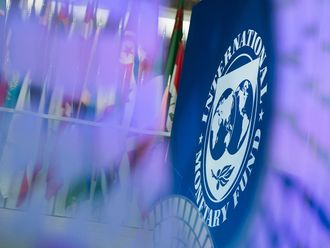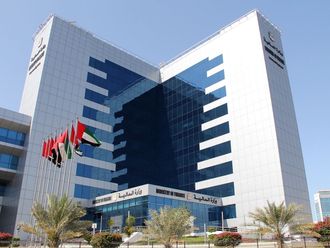Dubai: The UAE has been resilient to the impact of the prolonged oil price slump. Following the recent rise in oil prices to over $60 (Dh220) per barrel, there is a sense that the worst is behind the UAE’s economy and confidence is gradually returning, according to Institute of International Finance (IIF).
“We expect non-oil growth to pickup to 2.7 per cent in 2018 and 3 per cent in 2019, driven by private consumption and non-oil exports, as fiscal consolidation eases and global trade improves. The deceleration in headline growth last year was due to the oil production decline,” said Garbis Iradian, Chief Economist, Mena, IIF.
The UAE possess large financial buffers estimated at around $800 billion (Dh2.6 trillion), safe-haven status, excellent infrastructure, and a relatively diversified business-friendly economy, which will help the country cope with lower oil prices. Further progress in diversification into non-hydro-carbon trade and financial servicesis expected to mitigate the adverse impact of lower oil prices. Non-hydrocarbon GDP accounts for only 30 per cent of total GDP, and oil exports for slightly less than 40 per cent of total exports.
The UAE has continued to improve the business environment and competitiveness, even from an already high global ranking by the World Bank and the World Economic Forum. “We expect the UAE to be one of the best performers among Mena economies over the next five years. Solid growth will continue to be driven by trade and tourism,” Iradian said.
Firmer oil prices
Overall growth has decelerated to around 1 per cent in 2017 due to oil production cuts under the extended Opec agreement and fiscal consolidation. However, sentiment has improved with firmer oil prices. The PMI remained relatively high at 54.8 per cent in March 2018 despite the introduction of the VAT in early 2018.
“We see a gradual recovery in economic growth this year and next with improvement in global trade and the expected easing pace of fiscal adjustment in Abu Dhabi. Preparations for Expo 2020 and key projects will support activity in the UAE,” said Boban Markovic, Research Analyst at IIF.
Several high frequency economic indicators, including retail sales and number of tourist arrivals over the past few months, suggest improvement in sentiment and private sector activity. Non-oil activity in Abu Dhabi is improving after a challenging two years during which deep government spending cuts slowed activity. Key projects, such as the construction of nuclear plants and air-port expansion, are progressing, albeit with delays.
Dubai has performed relatively well due to its diversified economy and is projected to do well in the current year. “We expect growth in Dubai to remain slightly above 3 per cent. However, economic activity in Dubai continues to be dependent on regional prospects, particularly Saudi Arabia and Iran. The volume of property transactions has declined and residential prices have continued to soften,” said Iradian.












